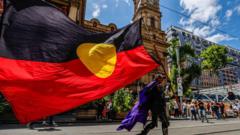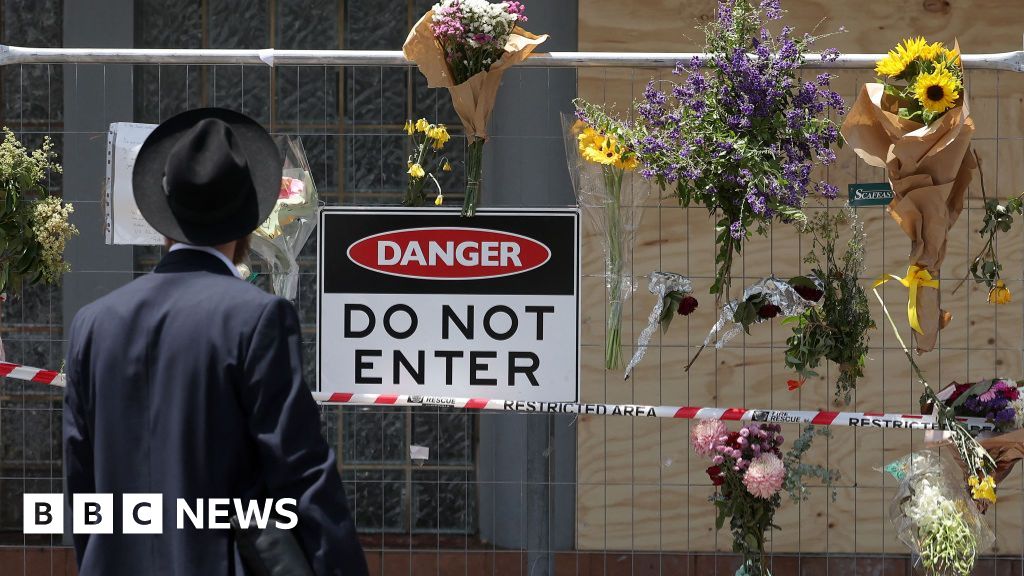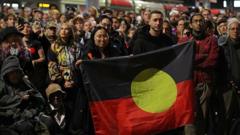In Yarrabah, a small Indigenous community in Far North Queensland, the lead-up to Australia's upcoming election feels notably quiet. Unlike other regions, where candidate posters dominate the landscape, Yarrabah remains devoid of political signs and engagement. Suzanne Andrews, chief executive of Gurriny Yealamucka Health Services, expressed her disappointment over the absence of political discourse concerning Aboriginal issues during debates among major party leaders. “What the hell's going on?” she remarked, witnessing the collective silence concerning Indigenous affairs.
Indigenous Australians, constituting about 3.8% of the 26 million population, face significant socio-economic disadvantages, often labeled as a “national shame” by leaders. Despite this, both Prime Minister Anthony Albanese and Opposition leader Peter Dutton have largely steered clear of discussing these critical First Nations topics during their campaigns. When Dutton did reference Indigenous culture, he dismissed “welcome to country” ceremonies, marking a rare moment of engagement with Indigenous issues, but focusing more on cultural critique than addressing systemic problems.
Experts contend that politicians are wary of venturing into First Nations matters, especially following the controversial defeat of the Voice to Parliament referendum in 2023. While Albanese passionately supported the initiative designed to enhance representation for Aboriginal and Torres Strait Islander peoples, it failed, with 60% of voters opposing it. Critics claimed it would lead to divisions within society, suggesting it risky for politicians to discuss Indigenous issues publicly.
Reflecting on the fallout of the referendum, both supporters and detractors have noted the pervasive disengagement from Indigenous topics in political discussions. Andrews, previously hopeful about the referendum's potential to spark substantive discussions on Indigenous policies, now feels disheartened that this election has shifted to a "playing it safe" stance, sidelining urgent Aboriginal issues. Prominent voices in the Indigenous community are voicing their critiques; Lidia Thorpe, an independent senator, remarked that there’s a “complete silence” on these important topics, emphasizing the need for political leaders to “tell the truth” about injustices facing Indigenous peoples.
Australia’s “Closing the Gap” strategy, aimed at addressing Indigenous disadvantage, continues to encounter challenges, with reports indicating that progress is stagnating or worsening in key areas. The recent electoral climate appears less focused on these critical issues, reflecting a broader trend of disengagement from First Nations matters as voter sentiments shift.
The 2023 referendum also led to a troubling increase in reported incidents of racism towards Indigenous Australians, highlighting the ongoing tensions within society. Many feel the divisive nature of the referendum debate has left a lasting impact, deterring further engagement and discussion on these pressing issues. Andrews expressed concern for young Indigenous people who suffered from racism and ostracization post-referendum, calling for greater sensitivity and advocacy.
The ongoing silence in political discourse leaves many Indigenous people feeling marginalized and invisible, with calls for political leaders to sincerely address the systemic challenges facing them. The political landscape may remain quiet on these crucial issues, but the urgency and impacts of such silence resonate deeply within Indigenous communities seeking their rightful place at the decision-making table.
Indigenous Australians, constituting about 3.8% of the 26 million population, face significant socio-economic disadvantages, often labeled as a “national shame” by leaders. Despite this, both Prime Minister Anthony Albanese and Opposition leader Peter Dutton have largely steered clear of discussing these critical First Nations topics during their campaigns. When Dutton did reference Indigenous culture, he dismissed “welcome to country” ceremonies, marking a rare moment of engagement with Indigenous issues, but focusing more on cultural critique than addressing systemic problems.
Experts contend that politicians are wary of venturing into First Nations matters, especially following the controversial defeat of the Voice to Parliament referendum in 2023. While Albanese passionately supported the initiative designed to enhance representation for Aboriginal and Torres Strait Islander peoples, it failed, with 60% of voters opposing it. Critics claimed it would lead to divisions within society, suggesting it risky for politicians to discuss Indigenous issues publicly.
Reflecting on the fallout of the referendum, both supporters and detractors have noted the pervasive disengagement from Indigenous topics in political discussions. Andrews, previously hopeful about the referendum's potential to spark substantive discussions on Indigenous policies, now feels disheartened that this election has shifted to a "playing it safe" stance, sidelining urgent Aboriginal issues. Prominent voices in the Indigenous community are voicing their critiques; Lidia Thorpe, an independent senator, remarked that there’s a “complete silence” on these important topics, emphasizing the need for political leaders to “tell the truth” about injustices facing Indigenous peoples.
Australia’s “Closing the Gap” strategy, aimed at addressing Indigenous disadvantage, continues to encounter challenges, with reports indicating that progress is stagnating or worsening in key areas. The recent electoral climate appears less focused on these critical issues, reflecting a broader trend of disengagement from First Nations matters as voter sentiments shift.
The 2023 referendum also led to a troubling increase in reported incidents of racism towards Indigenous Australians, highlighting the ongoing tensions within society. Many feel the divisive nature of the referendum debate has left a lasting impact, deterring further engagement and discussion on these pressing issues. Andrews expressed concern for young Indigenous people who suffered from racism and ostracization post-referendum, calling for greater sensitivity and advocacy.
The ongoing silence in political discourse leaves many Indigenous people feeling marginalized and invisible, with calls for political leaders to sincerely address the systemic challenges facing them. The political landscape may remain quiet on these crucial issues, but the urgency and impacts of such silence resonate deeply within Indigenous communities seeking their rightful place at the decision-making table.



















